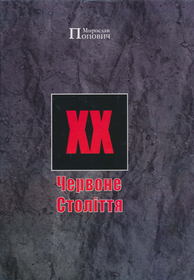Red Century: Kyiv: АртЕк, 2005. 888 p.
Synopsis
The book is an attempt at a new genre — a genre of philosophy of history by analogy with how philosophy of science or philosophy of art is written. The material on which the book was written is the history of European civilization of the 20th century, primarily that region of civilization that was covered by communist totalitarianism. The philosophy of history does not deal with the events themselves in their time sequence, but with the historical meaning of the events. Problems of historical meaning are directly related to the assessment of good and evil in human actions. The biggest secrets of the last century are not so much in important details of events, historical intrigue and hidden strategies of struggle of powerful political forces, but in the correct understanding and interpretation of the meaning of historical phenomena. It is around the assessment of history that sharp disputes unfold, in particular in Ukrainian history - around the assessment of the Central Rada, the Hetmanate, the Directory, national democracy and social democracy, the "shot Renaissance", the famine and the Great Terror, the Patriotic War and the struggle of the UPA, the fate of Ukrainian culture in Ukrainian SSR and in the diaspora, "perestroika" and the consequences of its failure (or victory, it is difficult to say). All these problems of the meaning of national history are considered in the book against a broad background.

